AARP Hearing Center

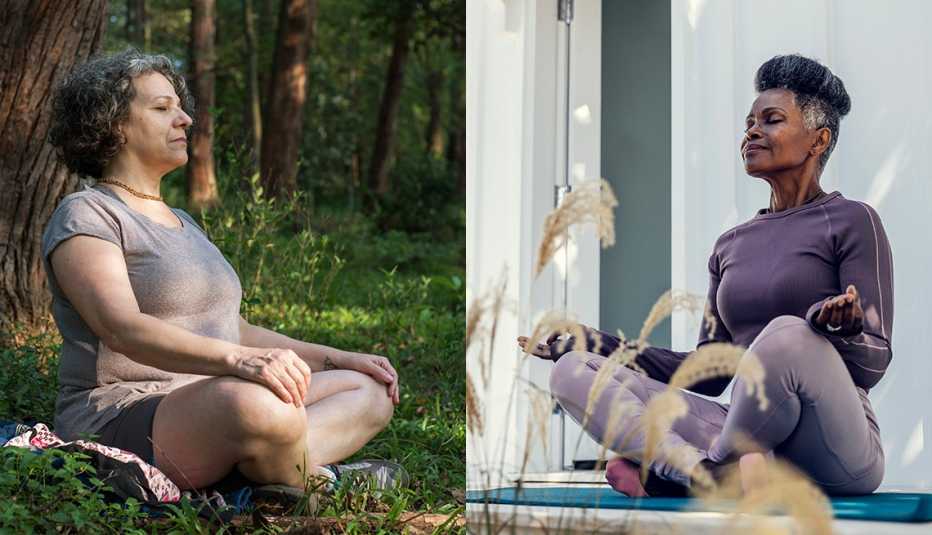
Stress due to the COVID-19 pandemic and the disproportionate impact the virus has had on their communities is compelling Black and Latina women who are 50 and older to place a renewed emphasis on inner health, self-care and well-being, according to a new AARP national survey.
"Mirror/Mirror: Women's Reflections on Beauty, Age, and Media,” an AARP survey of 4,851 women over the age of 18, reveals how worry is affecting their sleep, weight and other health issues.
The fear is justified. The Centers for Disease Control and Prevention (CDC) reported that Black and Latino adults are at greater risk of contracting coronavirus, being hospitalized and dying from the virus than white, non-Hispanic adults.
"Your health is your wealth,” says Shani Hosten, AARP vice president, African American/Black and LGBTQ Audience Strategy. “It's the number one thing that you really can control outside of the genetic disposition for some of the chronic conditions that African American/Blacks suffer from — high blood pressure, cholesterol, diabetes, obesity. With COVID, the disparities range from access to vaccinations and testing to [the fact] that people in our communities are dying at higher rates.” Yvette Peña, AARP vice president, Hispanic/Latino Audience Strategy, says Latina women are “CEOs of their multigenerational households. They're the ones doing the caregiving, probably doing all of the virtual learning for their children and making sure that there's broadband in the family. They've put all of the material things aside and focused on being well, so that they could take care of their family."
Other key findings include:
Focusing on health over appearance

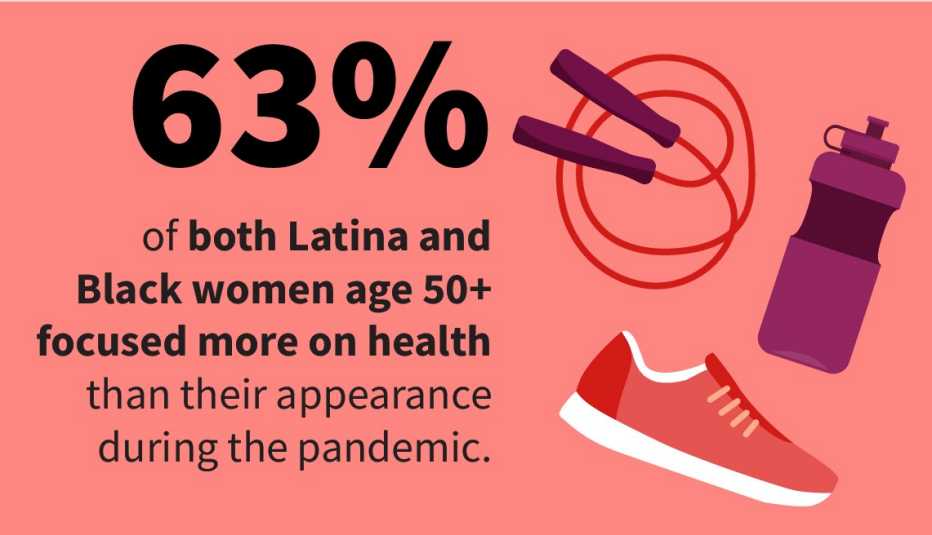
"Latinos are always put together. They always do their hair, and it's about the makeup and always looking young,” says Peña. “It took this pandemic for them to take a step back. Now they want to focus on feeling good and being well so they can do more for their family.”





























































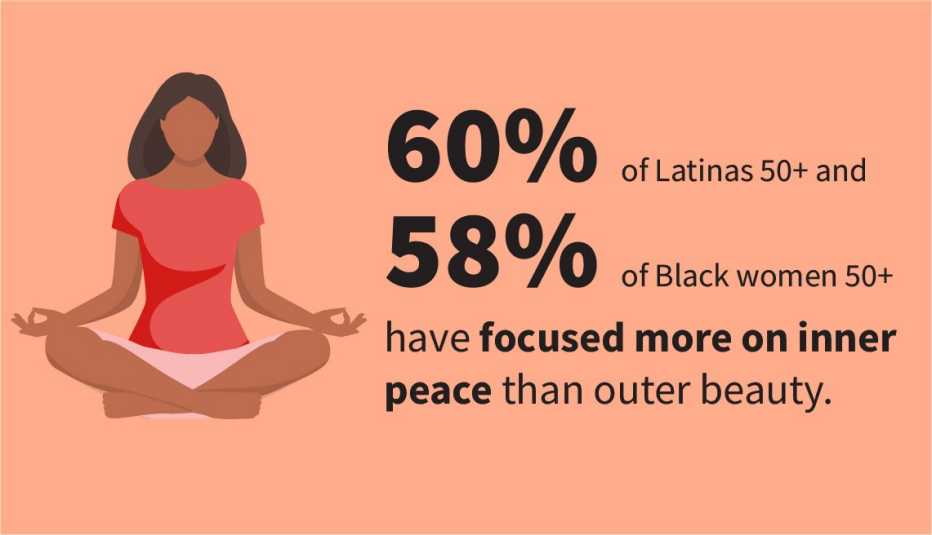
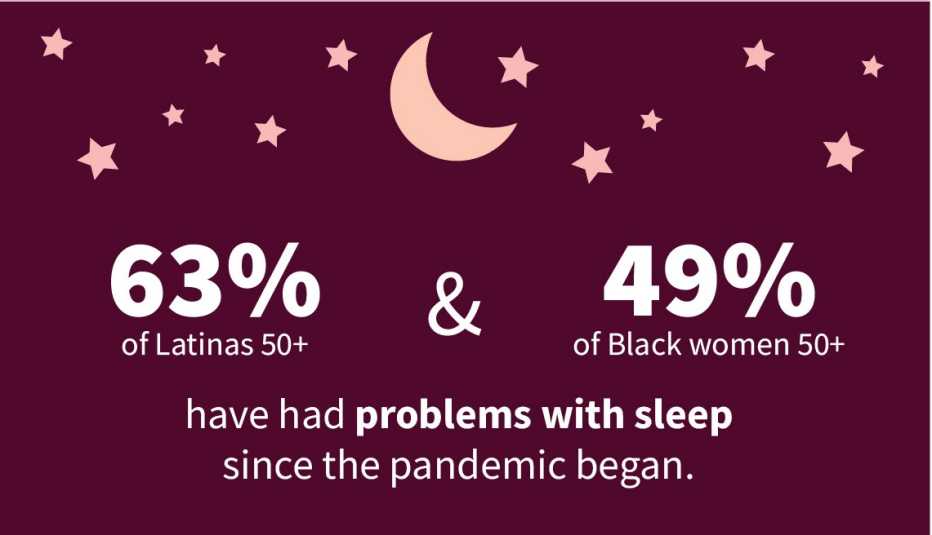
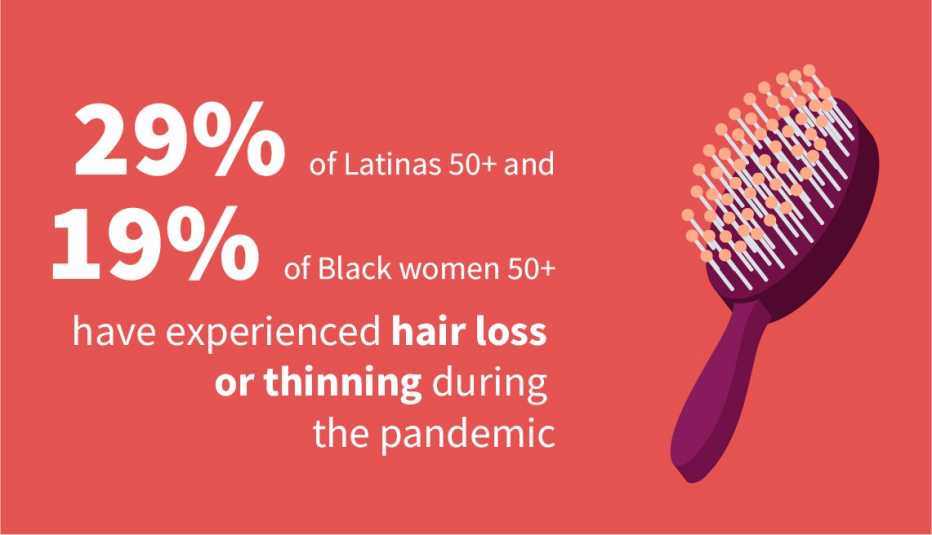
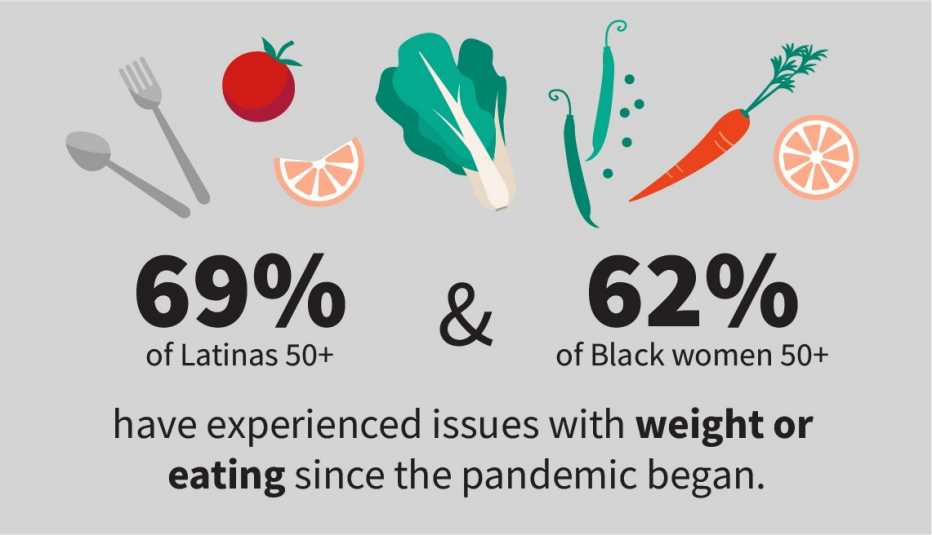
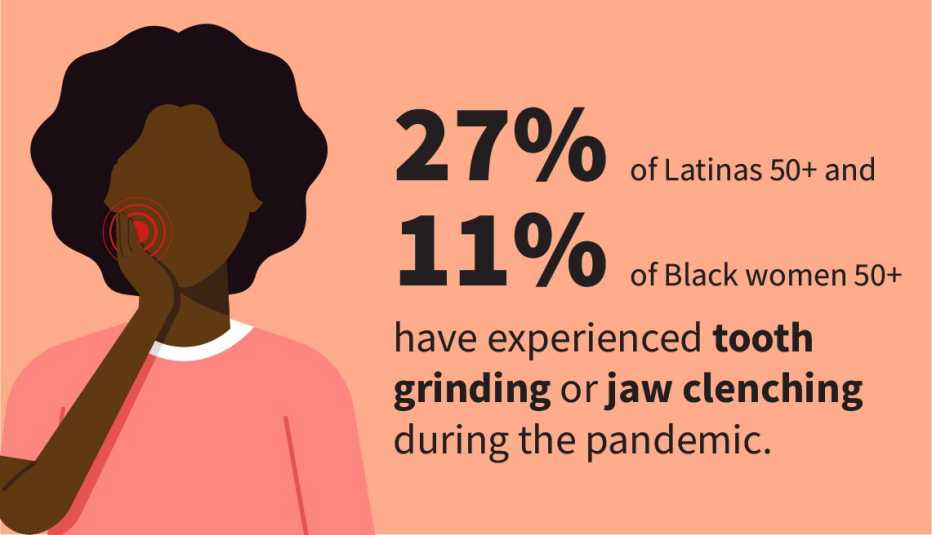
More From AARP
Test Your Mental Health a Year Into the Pandemic
Symptoms of anxiety and depression have risen since last March
During Pandemic Year, Weight Gain, Drinking, Insomnia Spiked
Survey finds an increase in stress led to unhealthy behaviorsIs COVID-19 Ruining Your Marriage?
Financial concerns, too much togetherness are straining unions